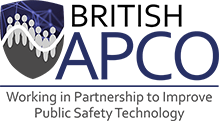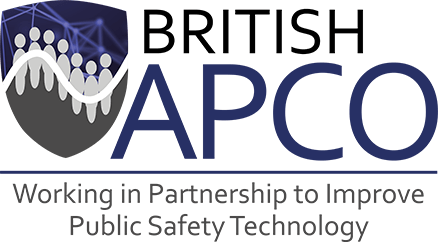999 Apps

British APCO’s Role in 999 Apps
The use of apps on mobile phones and mobile devices has increased hugely in recent years. The simplicity of the user experience and ease of connection encourages an expectation of continued development and connection to more and diverse systems across our society.
This expectation is no different in the world of Public Safety where a direct connection to the 999 system brings benefits to the user, the emergency service or public safety provider and to the operator BT. It could be considered the Holy Grail of public safety app development and connection.
British APCO is taking a significant role in ensuring a standardised approach to certifying apps before they can be considered for direct connection in the 999 system. British APCO sits on the UK 999 Liaison Committee. This group is chaired by the Department for Science, Innovation & Technology (DSIT) and has representatives from the emergency services, their respective government departments, the Civil Contingencies Secretariat, British Telecom and the mobile network operators (MNOs).
TapSOS
Deafness, speech impediments, asthma attacks, allergic reactions can all make it difficult to vocally reach out for help. TapSOS is a mobile app for a non-verbal method to contact the emergency services (999). Their journey with British APCO's 999 App Accreditation Scheme began in 2016 which has now developed in to a working relationship with Devon and Cornwall Police to ensure all operational needs are met and that all alerts from TapSOS are treated in the same manner as any 999 call.
Read their full story HERE and our dedicated 999 Apps article in the October 2017 edition of the BAPCO Journal.
REALRIDER®
In 2013 a presentation was made to the 999 Liaison Committee about a potentially life-saving smartphone app for motorcyclists. Realsafe Technologies, a company that develops safety technology, had been working with the North East Ambulance Service to develop the app (‘REALRIDER®’) and both parties were keen that this should become available across the UK – and linked to the 999 service. The REALRIDER® App was successfully accredited and has been protecting motorcyclist ever since across the UK, Ireland, Europe, North America, Australia & New Zealand - you can read more about the App here https://realrider.com/.
Triumph SOS
Realsafe Technologies created a version of their award-winning motorcycle app REALRIDER® for UK manufacturer Triumph Motorcycles. Specifically tailored for motorcyclists, Triumph SOS monitors key sensors in a smartphone to detect and validate a crash. If a crash is detected, an alert is triggered and sent to the 999 service together with the rider’s location direction of travel, bike details and health data. In 2021, Triumph SOS app achieved accreditation and delivers peace-of-mind for Triumph riders and their loved ones traveling across UK, Ireland, Europe, North America, Australia & New Zealand- you can read more about the App here (https://www.triumphmotorcycles.co.uk/owners/triumph-sos)
Dash Camera Emergency SOS
In 2019, Realsafe Technologies’ post-crash validation and emergency alerting service was integrated into a market-leading, connected in-car technology brand. It introduced new and revolutionary features to the Dash Camera market. This world-first collaboration was accredited and launched in 2019 and helps protect drivers across the UK, Ireland, Europe, North America, New Zealand, and Japan.
The Application Process for 999 App Approval
British APCO took the lead on the work of the 999 Liaison Committee and launched the 999 App Certification Scheme in 2016. The scheme allows app developers to present their app to a team with relevant operational and technical expertise.
There are two key stages to the application process:
Stage 1: If the app is deemed to have the potential to save life, the developer(s) will be put in touch with a suitable ‘host’ agency (Fire, Ambulance, Police, Coastguard – or a combination). The agency will work (on behalf of their single service) to make the app suitable for operational needs. This may include such issues as the information required, or the level of false activations deemed acceptable. Once both host and developer are satisfied with the performance of the app, they will return to the 999 App Certification Panel for approval.
Stage 2: Consists of technical testing with BT, briefing of the rest of the UK emergency service(s) for when the app goes live – and final sign off by the UK 999 Liaison Committee. A British APCO certificate will be awarded and the app will be publicly endorsed for its suitability to be integrated with the 999 service.
When a certified app activates in the ‘real world’, relevant data will delivered (via EISEC) directly into the Command and Control software of the appropriate emergency service via the BT 999 service. An annual re-certification process will ensure that the app continues to perform to its required standard.
The full process guidance document can be found below.
If you would like to submit an app for consideration by the 999 App Certification Panel and possible entry into the process, please read the document above thoroughly and then email support@bapco.org.uk with full details.



